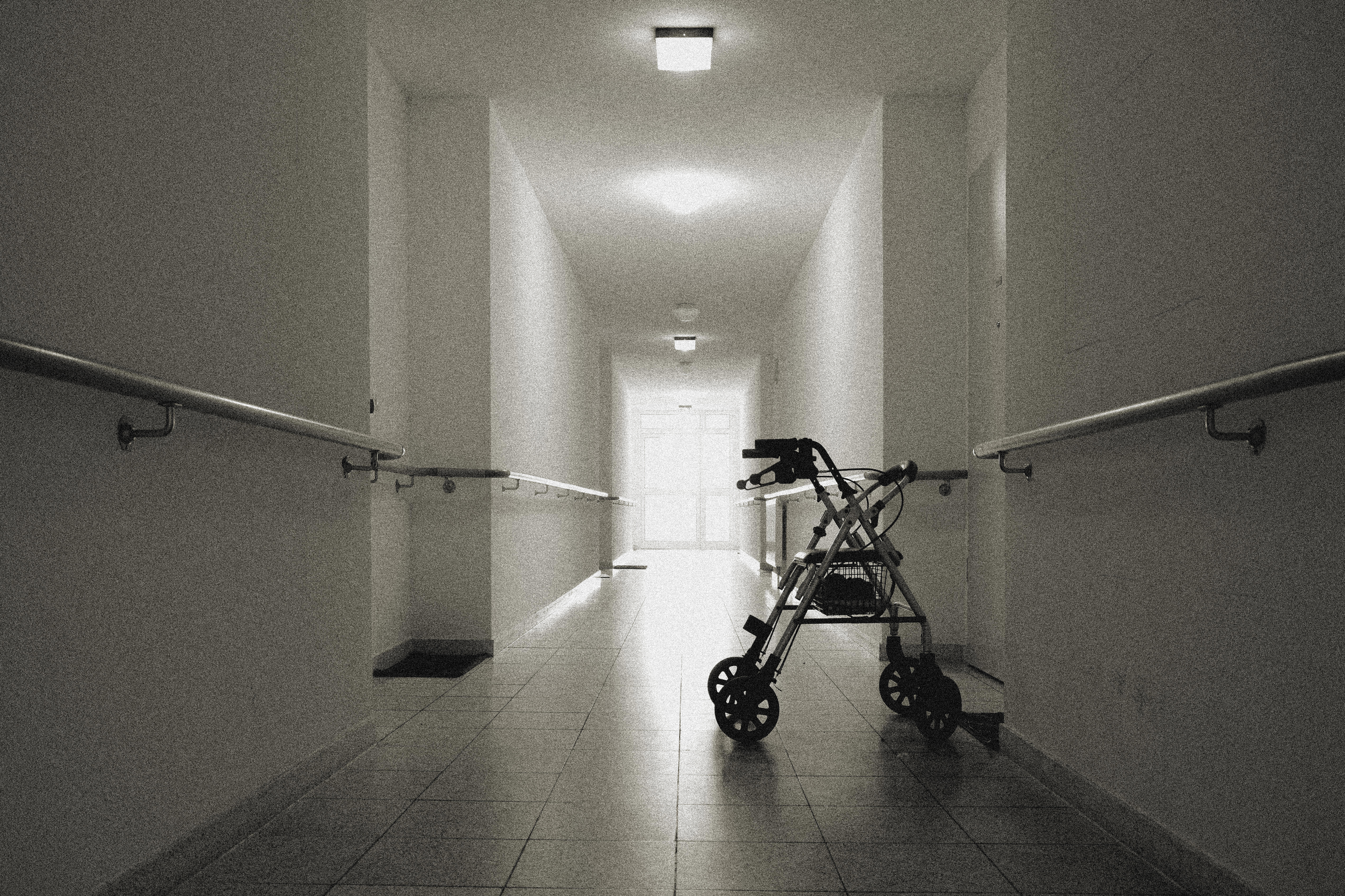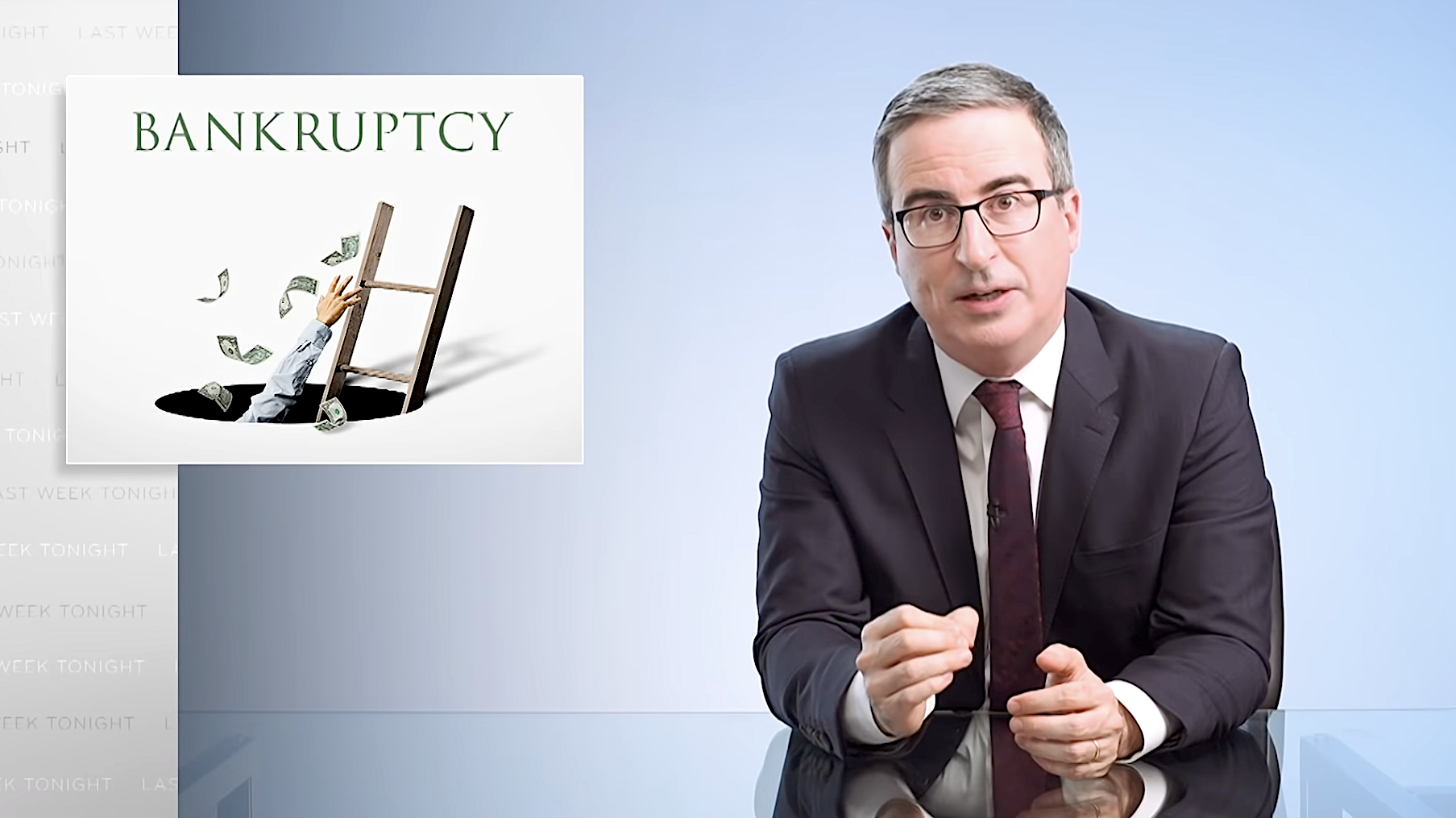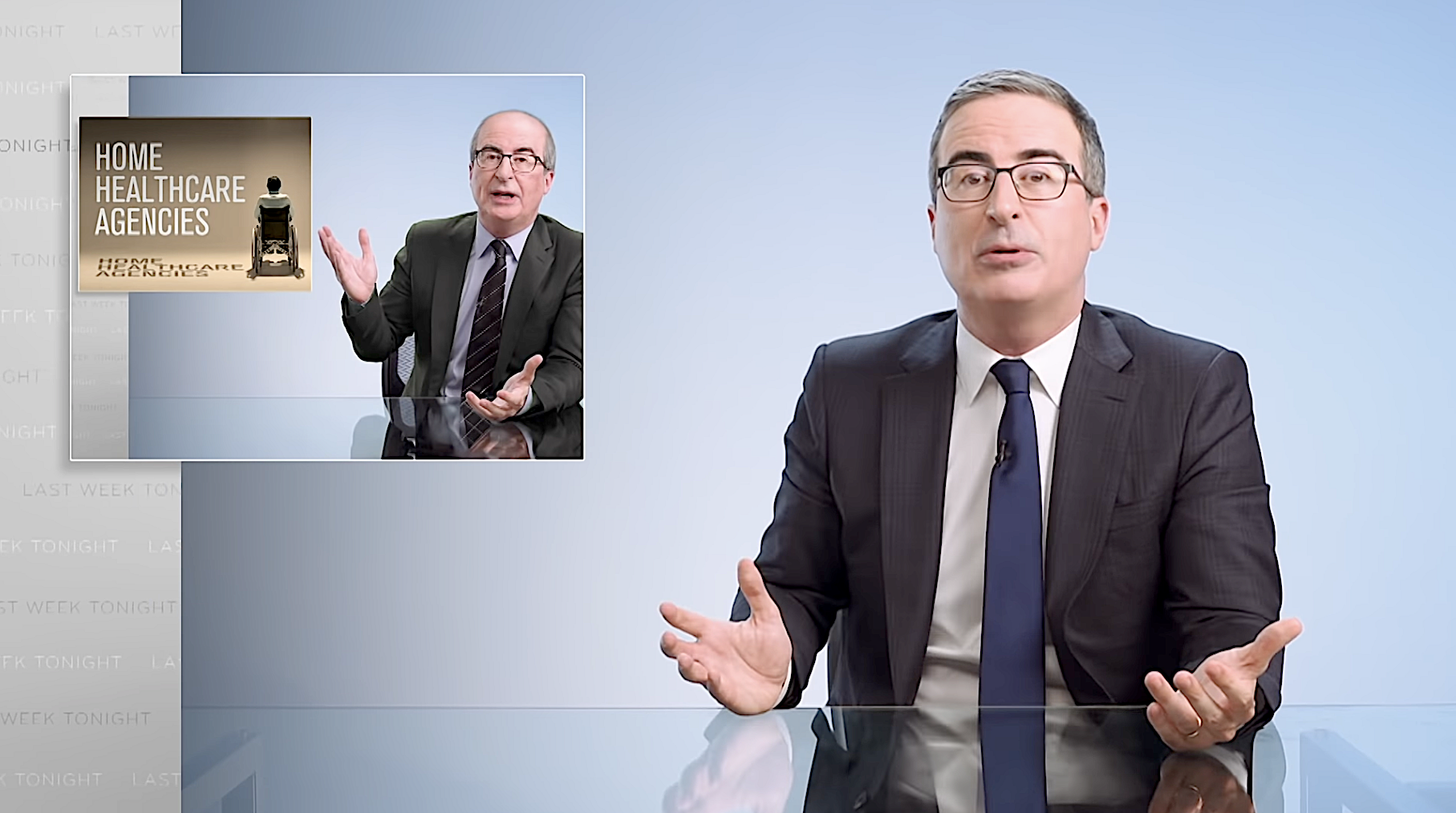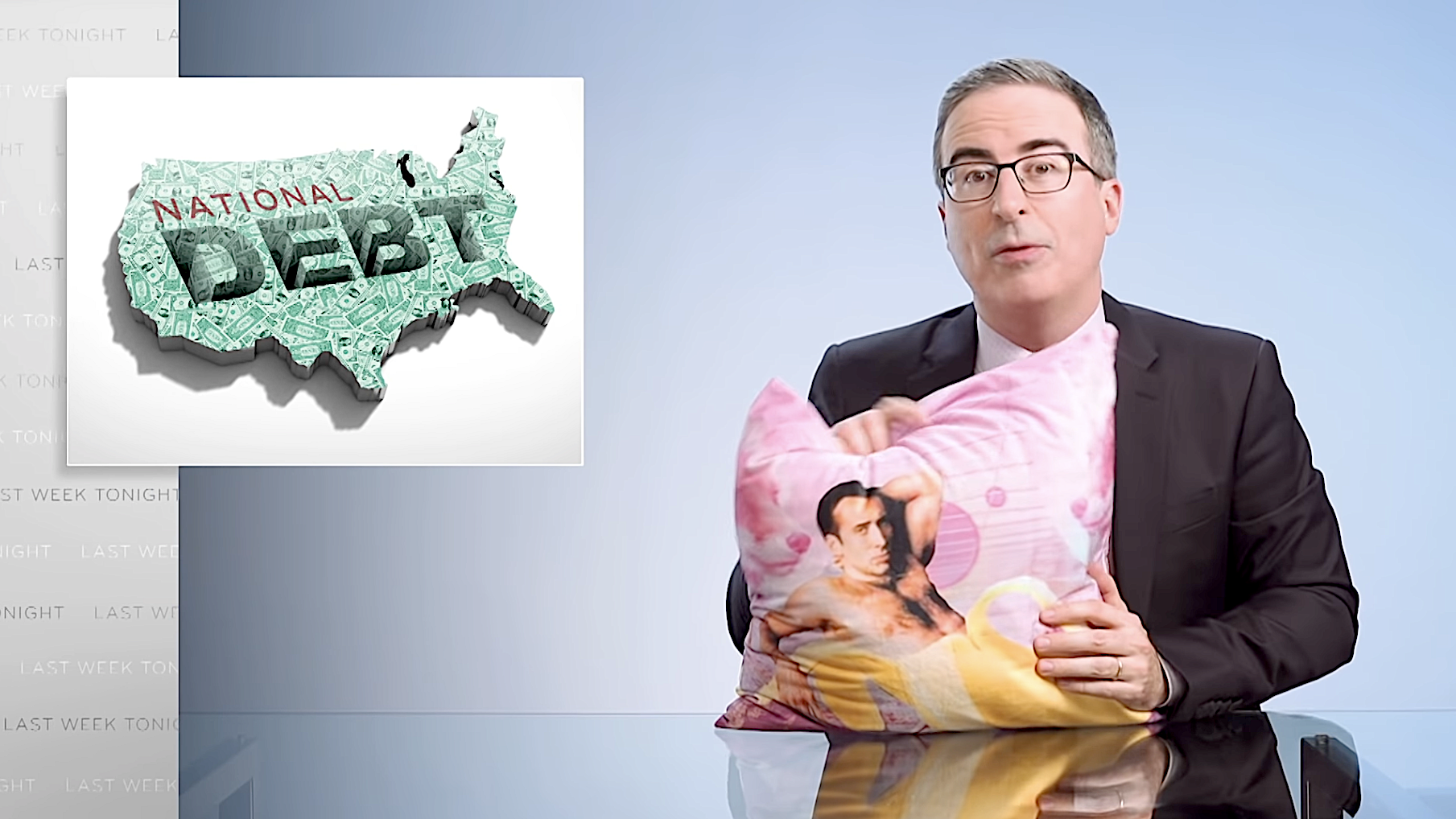The death industry
Why can't more of us find it in our hearts to look after our parents and grandparents in our own homes, and spare them from those who profit off death and decay?


A free daily email with the biggest news stories of the day – and the best features from TheWeek.com
You are now subscribed
Your newsletter sign-up was successful
Two weeks ago, millions of Americans mourned the death of Barbara Bush, one of our greatest first ladies and an exemplar of virtues this country has lost or forgotten. Mrs. Bush spent her last day of terrestrial existence being held by her husband of some 73 years and drinking bourbon. Not very long before, a near-contemporary of hers, a former model named Rebecca Zeni, died in rather different circumstances at a nursing home in Georgia, according to a report in The Washington Post.
Parasitic mites had burrowed under her skin, living and laying eggs all over her body. By the time she died, vesicles and thick crusts had formed on her skin. Her right hand had turned nearly black, and … her fingers were about to fall off.The scabies that infected Zeni's body had become so severe that bacteria seeped into her bloodstream. [The Washington Post]
This is almost unfathomably gruesome. But similar cases are hardly unheard of in the sinister world of privately owned for-profit nursing homes like the one in which Zeni had been living. Shepherd Hills in LaFayette, Georgia, had been home to several outbreaks of scabies and been charged with numerous health violations in the years before Zeni's death. Study upon deflating study has shown that under every conceivable metric the "care" received in such places is inferior to that provided by charitable institutions. Federal regulators have a special category of so-called "special focus facilities" that, due to repeated lapses, require increased oversight for a period of 15 months. According to a New York Times report, of the 524 homes subject to this designation before 2014 and since returned to normal status, more than half have gone on to harm their patients.
The idea that one might be able to profit from the painful fact of senescence is inherently grotesque. But these companies' business models, like any other, depend upon the minimization of costs and the maximization of revenue. In practice what this means is that the owners of many of these facilities do their very best to meet the minimum standards of conduct necessary for their businesses to remain open, going through the motions and paying out fines when necessary, while raking in as much cash from patients' savings or trusts or younger relations or, failing that, Uncle Sam, as they possibly can.
The Week
Escape your echo chamber. Get the facts behind the news, plus analysis from multiple perspectives.

Sign up for The Week's Free Newsletters
From our morning news briefing to a weekly Good News Newsletter, get the best of The Week delivered directly to your inbox.
From our morning news briefing to a weekly Good News Newsletter, get the best of The Week delivered directly to your inbox.
They are parasites that feed, literally, on decay and death.
While it goes without saying that more should be done to ensure that nursing facilities, including those not run for profit, operate in accordance with federal guidelines concerning the health and safety of their residents, there is something to be said for the idea that millions of Americans now living in them would be better off being taken care of by their families. Much of this cruelty could be avoided if more of us found it in our hearts to look after our parents and grandparents in our own homes.
Why this has not happened more often is difficult to say. Modern nursing homes, for-profit and otherwise, are the successors of the almshouses that existed from colonial times until the Depression, when their frequently appalling conditions became fodder for journalists. At the risk of painting with too broad a brush, I would suggest that there is something to the reality of the stoical Greatest Generation not wanting to be a burden and allowing their typically feckless boomer children to send them off to the outer darkness so that they can continue agitating for legalized marijuana and buying Bob Dylan boxed sets with their generous pensions.
I know many people who have made the decision to look after one or more of their parents in old age. One is a retired bank teller. Another is an archbishop. While their experiences differed greatly in many respects, what both of these individuals had in common was a feeling that it was their responsibility to love and care for their aged mothers no matter how difficult it became. There is something rather touching about the idea that the same people who held us on their laps and gave us treats while we babbled might one day receive from us something similar in return, not in a spirit of cold quid pro quo but out of mutual self-giving.
A free daily email with the biggest news stories of the day – and the best features from TheWeek.com
Taking care of one's own relations rather than entrusting them to the hands of strangers for whom their lives, whether dignified or wretched, are a mere source of income is a humbling expression of gratitude and a quiet acknowledgement of the fragile beauty of old age.
Matthew Walther is a national correspondent at The Week. His work has also appeared in First Things, The Spectator of London, The Catholic Herald, National Review, and other publications. He is currently writing a biography of the Rev. Montague Summers. He is also a Robert Novak Journalism Fellow.
-
 Corruption: The spy sheikh and the president
Corruption: The spy sheikh and the presidentFeature Trump is at the center of another scandal
-
 Putin’s shadow war
Putin’s shadow warFeature The Kremlin is waging a campaign of sabotage and subversion against Ukraine’s allies in the West
-
 Media: Why did Bezos gut ‘The Washington Post’?
Media: Why did Bezos gut ‘The Washington Post’?Feature Possibilities include to curry favor with Trump or to try to end financial losses
-
 Late night hosts joke about Trump's forced exodus from Facebook to blog
Late night hosts joke about Trump's forced exodus from Facebook to blogSpeed Read
-
 Fox News admits Biden doesn't actually want to cancel meat. Late night hosts pounce anyway.
Fox News admits Biden doesn't actually want to cancel meat. Late night hosts pounce anyway.Speed Read
-
 Manhattan D.A. will stop prosecuting sex workers, not their clients, pimps, or sex traffickers
Manhattan D.A. will stop prosecuting sex workers, not their clients, pimps, or sex traffickersSpeed Read
-
 John Oliver explains personal bankruptcy, how credit card lobbyists and lawyers make it much worse
John Oliver explains personal bankruptcy, how credit card lobbyists and lawyers make it much worseSpeed Read
-
 John Oliver explores problems with U.S. nursing homes and long-term care, suggests you pay attention
John Oliver explores problems with U.S. nursing homes and long-term care, suggests you pay attentionSpeed Read
-
 John Oliver tries to explain whether you should worry about the enormous U.S. national debt
John Oliver tries to explain whether you should worry about the enormous U.S. national debtSpeed Read
-
 Late night hosts laugh at the giant ship blocking the Suez Canal, chide Fox News for fake Kamala Harris scandal
Late night hosts laugh at the giant ship blocking the Suez Canal, chide Fox News for fake Kamala Harris scandalSpeed Read
-
 Utah governor signs bill requiring porn blocking on all new smartphones and tablets
Utah governor signs bill requiring porn blocking on all new smartphones and tabletsSpeed Read
